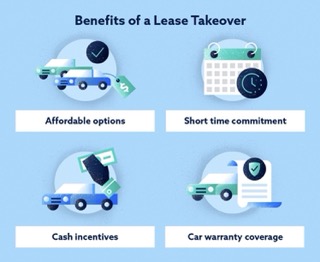Everything You Need to Know About Auto Financing – All in One Guide!
What Is Auto Financing?
Auto financing (or a car loan) is a vehicle financing option with terms ranging from 24 to 96 months. Unlike leasing, once your loan term ends, the car becomes your property. Financing is widely available—whether through dealerships, banks, or used car dealers—and some lenders even offer $0 down payment options to drive your car home immediately.
However, since financing is essentially a loan, approval involves a thorough review process, with credit score being a key factor. Let’s break down how auto financing works in Canada.
Good Credit vs. Bad Credit: What’s the Difference?
Financing means finding a lender willing to cover the cost of your car. Your Credit Score determines whether you qualify. A high score signals responsible financial behavior (e.g., paying bills on time), making you a low-risk borrower.
In Canada:
600+ is typically the minimum score for approval.
630–650 is average—you’ll get standard loan terms.
680–720 is above average.
720+ is excellent (and unlocks the best rates).
Below 600? Approval becomes tougher, and interest rates rise.
Pro Tip:
The higher your score, the lower your interest. Banks often have strict credit requirements, while third-party lenders may work with lower scores.
How to Get Financing Without Credit History
Here are 4 ways to secure approval:
-Provide Supporting Documents
Since you lack a credit report, lenders will assess:
Proof of employment (stable income matters).
Bank statements (to show financial responsibility).
Utility bills (consistent on-time payments help).
-Use a Co-Signer
A co-signer (e.g., family member or friend) with good credit boosts your approval odds. But note: They’re legally responsible if you default, so ensure you can make payments.
-Start Building Credit Now
Open a basic credit card, make small purchases, and pay balances in full. Demonstrating reliability increases your chances.
-Offer a Down Payment
Even a small down payment (e.g., $1,000–$2,000) reduces the lender’s risk, improving approval odds.
Pros and Cons of Auto Financing
Pros:
Boosts Credit Score: Timely payments (35% of your score!) build credit fast.
Easier Future Loans: A strong score helps with mortgages, personal loans, or credit cards.
Cons:
Repossession Risk: Defaulting means losing the car (it’s collateral).
High-Interest Rates: Poor credit = higher rates. Good credit = better deals.
Did You Know? Auto loans are easier to get than unsecured loans because the car acts as collateral.
Buy, Sell, Lease, or Transfer a Car? SparkLease Has You Covered!
For more car-related tips, reach out to us:
Phone:437-880-4496
Email:info@sparklease.com
Website: www.sparklease.com


